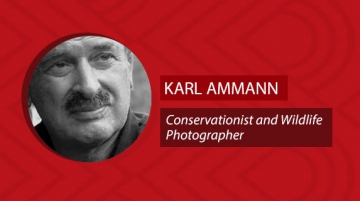
For the first time in years, there is positive news to report in the fight to save Africa’s elephants from extinction. A new study by the Save the Elephants revealed that the price of ivory in China has halved over the past 18 months, indicating that heightened social awareness on the Mainland combined with a series of new policy initiatives by the government are beginning to impact demand in the world’s largest ivory market.
The Chinese government appears to be following up on president Xi Jinping’s October 2015 announcement that Beijing will eventually phase out the country’s ivory trade. Although specific details about the proposed ban have not been revealed and the new law has yet to go into effect, the market for this once prized precious resource is changing.
Conservationists had hoped that president Xi would use the recent China-Africa summit in Johannesburg as a forum to announce the implementation of the ban, or at least provide some information on what the government plans to do.
Instead, wildlife conservation and other environmental issues were largely sidelined as both Chinese and African leaders focused on infrastructure, security and other economic development issues.
Andrea Crosta, co-founder and Executive Director of the Elephant Action League, said he wasn’t surprised or event disappointed that the ivory issue did not figure prominently at FOCAC. Rather, he’s been encouraged recently by trends in China where he sees a growing number of consumers shunning ivory products combined with a series of new legal measures by the government to crack down on illegal trading activity.
“China is doing more to protect elephants than Africa,” said Crosta, highlighting what is no doubt an extremely sensitive issue in the global conservation community where China has been understandably been vilified as enemy #1 of Africa’s embattled elephants.
Crosta joins Eric & Cobus to discuss why the ivory issue is far more complicated than simply shutting down demand in China. Reforming conservation laws, customs enforcement and eliminating corruption in Africa are equally important in the fight to save these beautiful animals.
Show Notes:
- The Washington Post: Lifeline for elephants: Ivory price halves in China after Xi pledges ban by Simon Denyer
- The Daily Mail (UK): Chinese customs seize enormous haul of illegal elephant tusks worth £850,000 after promise of a blanket ivory ban by Gabriel Samuels
- The Zimbabwean: China hands over latest anti-poaching equipment to Zimbabwe by Xinhua
About Andrea Crosta: Andrea has 25 years of experience in conservation and research projects all over the world. He sits on the board of the Italian environmental NGO “Torbiera” Zoological Society and since 1989 he has been involved on a variety of projects in Africa, Asia, South America and Europe.
Andrea has 25 years of experience in conservation and research projects all over the world. He sits on the board of the Italian environmental NGO “Torbiera” Zoological Society and since 1989 he has been involved on a variety of projects in Africa, Asia, South America and Europe.
He’s among the founding and supervisory board members of the recently established Wildlife Justice Commission, in the Hague, The Netherlands.
In a parallel professional career he has been working for over 15 years as an international consultant to companies and governmental agencies on high-end security technologies & services, homeland security, investigation and risk management, a unique knowledge that he now applies to conservation and wildlife protection.
In 1998 he founded ‘Think Italy’, among the very first e-commerce companies in Italy.
Andrea is also a partner of ‘Kids Home’, a private NGO that provides support to children and their families in Chiang Mai, Thailand. He holds a Master Degree in Natural Sciences, a Master Degree in Business & Innovation and a BSc in Psychology.



